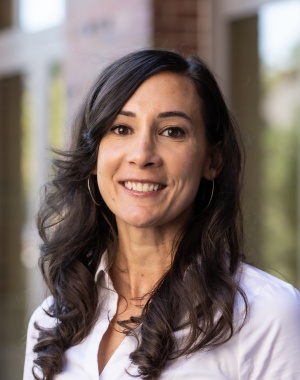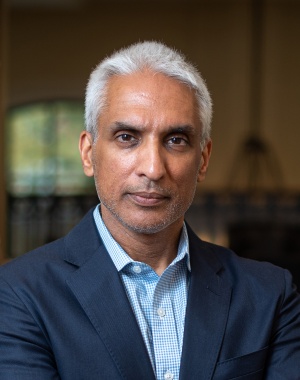Post Election Analysis with U-M Faculty Experts
Speaker
Javed Ali, J. Alex Halderman, Rusty Hills, Barbara McQuade, Vincent Hutchings, Mara OstfeldDate & time
Location
Join the Ford School for an election debrief and discussion, with whatever results are available, with J. Alex Halderman, Bredt Family Professor of Engineering; Barbara L. McQuade, Professor from Practice at Michigan Law; Vincent Hutchings, Professor in Political Science and Afroamerican and African Studies; Javed Ali the Ford School's Professor of Practice, Mara Ostfeld the Ford School's Research Associate Professor and Faculty Associate, Center for Political Studies, Institute for Social Research and Gerald J. Hills, Teaching Professor in Public Policy.
Submit questions upon registration and come prepared to submit additional ones as the election results unfold.
Speaker bios:
Javed Ali is an associate professor of practice at the Gerald R. Ford School of Public Policy where he delivers courses on counterterrorism and domestic terrorism, cybersecurity, and national security law and policy. Ali brings more than 20 years of professional experience in national security and intelligence issues in Washington, DC. He held positions in the Defense Intelligence Agency and the Department of Homeland Security before joining the Federal Bureau of Investigation. While at the FBI, he also held senior roles on joint duty assignments at the National Intelligence Council and the National Counterterrorism Center, and the National Security Council under the Trump Administration.
J. Alex Halderman is the Bredt Family Professor of Computer Science & Engineering at the University of Michigan College of Engineering, where he is also director of the Center for Computer Security & Society. Halderman's research focuses on computer security and privacy, with an emphasis on problems that broadly impact society and public policy.
Rusty Hills is a lecturer in public policy at the Gerald R. Ford School of Public Policy at the University of Michigan. He has served in senior leadership roles in the Michigan Office of Governor and the Michigan Department of Attorney General for 23 years. Hills was elected unanimously to serve as chair of the Michigan Republican Party in 2000 and again in 2001. In 1990, Hills served on the transition team for Governor-elect John Engler, and again in 2010 for Attorney General-elect Bill Schuette. Prior to government, public service and politics, Hills worked as a reporter and anchorman for CBS and NBC television affiliates.
Vincent Hutchings' general interests include public opinion, elections, voting behavior, and African American politics. He has studied how the size of the African American constituency in congressional districts can influence legislative responsiveness to Black interests. He is also interested in the ways that campaign communications can "prime" various group identities and subsequently affect candidate evaluations.
Barbara McQuade is a professor from practice at Michigan Law. Her interests include criminal law, criminal procedure, national security, data privacy, and civil rights. From 2010 to 2017, McQuade served as the US attorney for the Eastern District of Michigan. Appointed by President Barack Obama, she was the first woman to serve in her position. McQuade also served as vice chair of the Attorney General’s Advisory Committee and co-chaired its Terrorism and National Security Subcommittee. As U.S. attorney, she oversaw cases involving public corruption, terrorism, corporate fraud, theft of trade secrets, civil rights, and health care fraud, among others.
Mara Ostfeld is the research director at the Center for Racial Justice, and an associate research professor in the Ford School of Public Policy at the University of Michigan. In addition, Mara is a faculty lead at the Detroit Metro Area Communities Study—an ongoing representative survey of Detroit households that asks residents about their expectations, perceptions, priorities and aspirations. She is an expert in survey research and the analysis of public opinion, with a particular focus on the relationship between race, gender, media and political attitudes.


